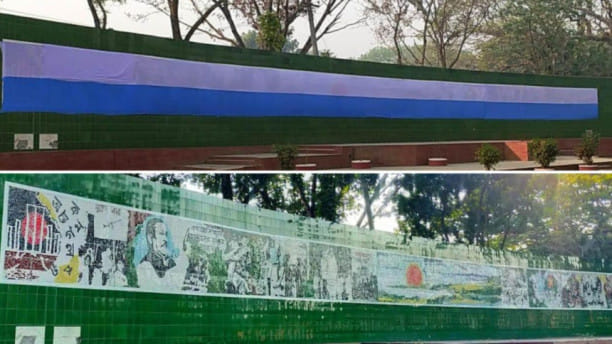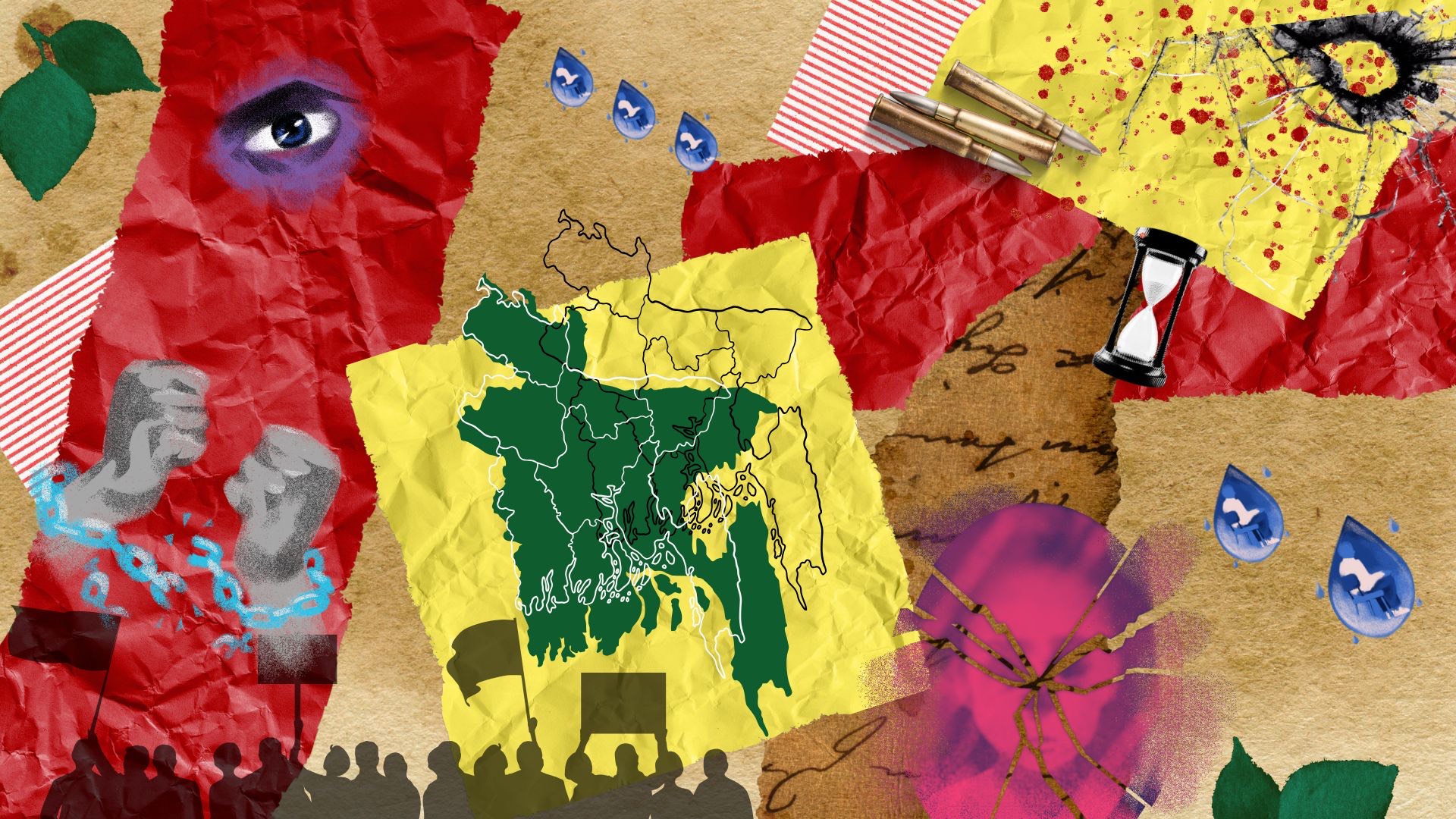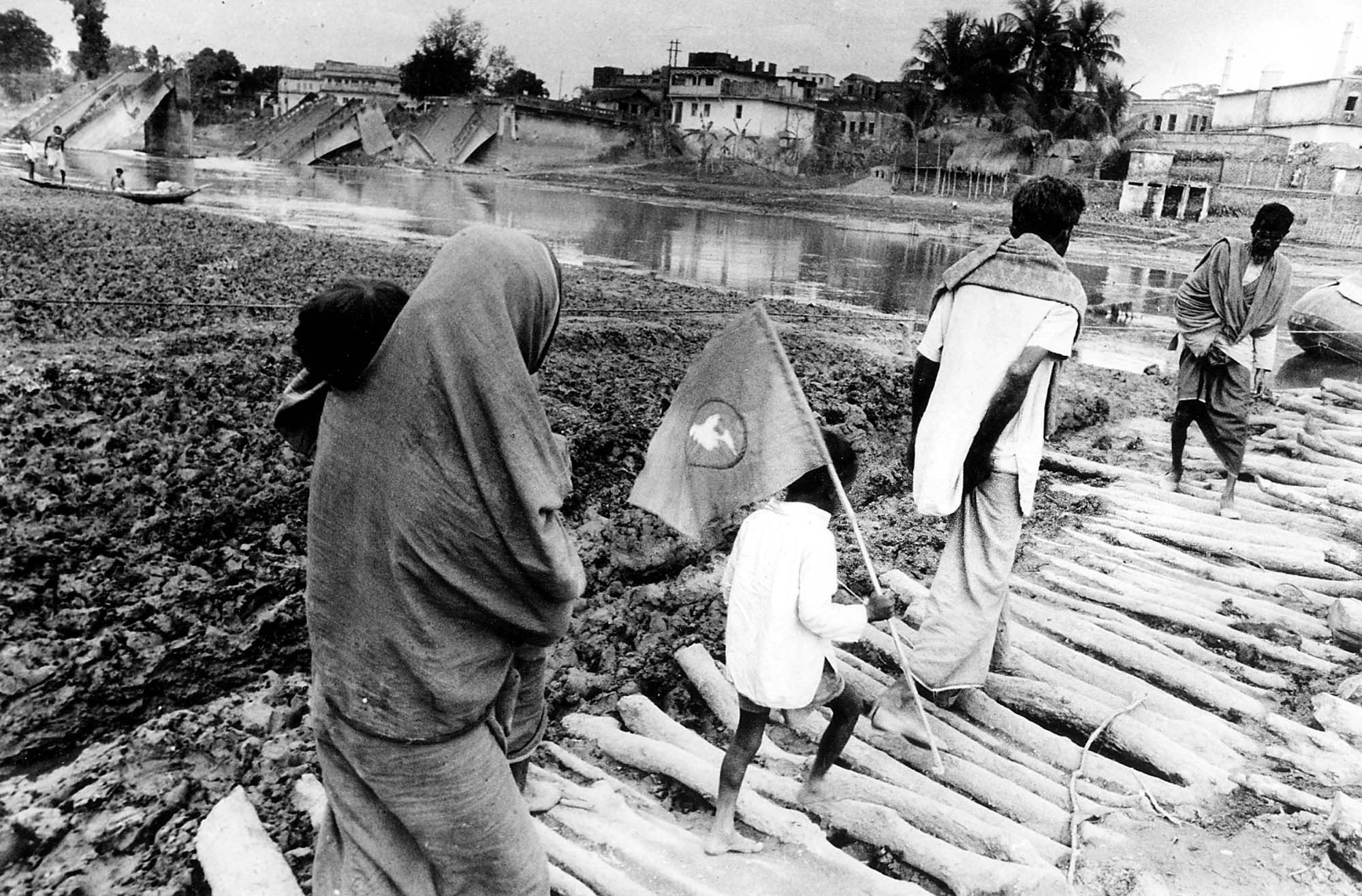Political expediency and the narratives of our liberation

It was plainly evident on March 26 how Bangladesh's political parties do not dither to propagate alternative narratives of our independence and the 1971 Liberation War purely for expediency. They did not seem to mind at all that, in the process, they end up belittling or trivialising 1971 or our independence, which should have become sacrosanct by now.
The July uprising leaders—some of whom remain in the government, while others lead the newly formed National Citizen Party (NCP), having established itself as the natural heir of the July uprising—revisited their comparison of the achievement of 2024 with 1971. Their statements on March 26 were along the same vein, perhaps in an attempt to reassure people that they are still respectful of 1971 even while they eulogise 2024. Take Nahid's remarks, for example. The top NCP leader said many could not yet grasp the significance of the mass uprising and the people's victory.
He said the events of 1971 and 2024 were interconnected, and the spirit of the Liberation War was revived through the July uprising. "We believe '71 and '24 are not separate," he said. The promise of equality, he added, had remained unfulfilled, allowing a fascist regime to rule Bangladesh for 15 years. "In '24 we advocated for the same egalitarian society."
Still an adviser to the interim government and one of Nahid's longtime comrades from the uprising, Asif Mahmud Shojib Bhuiyan said merely securing a piece of land—which seems to suggest that it is all that happened through the Liberation War in 1971—is not necessarily the be-all and end-all of freedom. True independence is also in the freedom of thought, expression, and speech, which was not there in the last 15 years.
BNP leaders, on the other hand, were sharp in their criticism of these young leaders, dismissing any comparison with 1971, as they have been doing for quite some time. Senior leaders of this party, which had been the main opposition camp to the Awami League regime, have been sharply critical of the oft-repeated pronouncements like "new independence," "second republic," and "Bangladesh 2.0."
But BNP had no qualms about being the main ally of Jamaat-e-Islami and its student wing Chhatra Shibir for a long time to hold on to power, or even appoint Motiur Rahman Nizami or Ali Ahsan Mohammad Mojaheed—both of whom are held responsible for leading vigilante militias during the Liberation War and have been hanged for their war crimes—as ministers. As such, one could assume that this newfound sensitivity regarding our Liberation War—which is, of course, welcome if proven to be genuine—is nothing but political posturing; a ploy to set themselves apart as the champions of Bangladesh's Liberation War and the sanctity of 1971.
While the political sphere is rife with such exchanges, Jamaat is cleverly exploiting the opportunity to posit its own narrative of the Liberation War, which it had actively opposed. It would have been unimaginable even last year that the party which actively opposed the Liberation War, joined hands with the Pakistani army, and was instrumental in abetting, inciting, and even perpetrating war crimes, would presume to have any authority on this matter.
But for some people, Jamaat's acceptance—however grudging that might have been—as a political force came about only after it came to light that they had been among the forces that bolstered the July uprising. In fact, it transpired later that many of the frontline uprising leaders were top office bearers of Shibir, a fact they had concealed from the public and even their comrades.
The uprising leaders, for their part, have indicated that Jamaat and Shibir's sacrifice and active participation in the July uprising of 2024 have been enough of a penance for their crimes in 1971. The presumption that participation in an uprising undoes war crimes, wittingly or not, implicitly likens the July uprising and the Liberation War. Jamaat, for its part, has latched on to that sliver of opportunity to criticise Mujib and his "pro-India stance."
They point out how Bangladesh had been run according to Indian prescriptions, how Dhaka continued to be manipulated by New Delhi, and thus insinuate that the independence of 1971 was not quite what we thought it to be. That it was not quite true independence. And that rhetoric, quite conveniently—too conveniently, in fact—fuses rather well with the NCP claiming to have heralded a new independence.
There are also alarming signs on other fronts. There are the ghostly platforms like "Students for Sovereignty" and the "Inquilab Mancha" preventing the Indigenous people from marching for their rights or activists from standing up for rape victims. While there is no conclusive evidence of who is behind propping up these platforms disrupting the social fabric of harmony and tolerance, they smack of being run by those adept at concealing their identity. The optics of men wielding sticks tied with the red and green, beating down Indigenous people on the streets of Dhaka for demanding the inclusion of "Adivasi" in an artwork on a textbook—which, by the way, remains deleted—would suggest that patriots were acting against traitors, when actually it could be argued to be the other way around.
Together, this lays the groundwork for Jamaat to emerge free of its mire and shame of 1971 and helps it claim a place as a rightful political contender.
To conclude, a mural depicting the 1971 Liberation War was covered up this Independence Day—before being destroyed later—because, according to the district commissioner, it did not align with the ideals of the July uprising. Surely that would add to the jubilation of those who want to undermine our independence and sow seeds of doubt. While those seeds fester, the uprising leaders remain quiet, looking the other way.
If the independence of the nation has to take a back seat to the spirit of the July uprising—if it is perceived that celebrations of our Independence Day are becoming muted just so that it is not too inconvenient for certain quarters—then those perceived to be behind such a disposition would see their credibility eroded. The July uprising will always have its place. But so long as the NCP is seen not giving '71 its justified importance, it may affect their likelihood of winning the hearts and minds of the people.
Tanim Ahmed is digital editor at The Daily Star.
Views expressed in this article are the author's own.
Follow The Daily Star Opinion on Facebook for the latest opinions, commentaries and analyses by experts and professionals. To contribute your article or letter to The Daily Star Opinion, see our guidelines for submission.




 For all latest news, follow The Daily Star's Google News channel.
For all latest news, follow The Daily Star's Google News channel. 

Comments